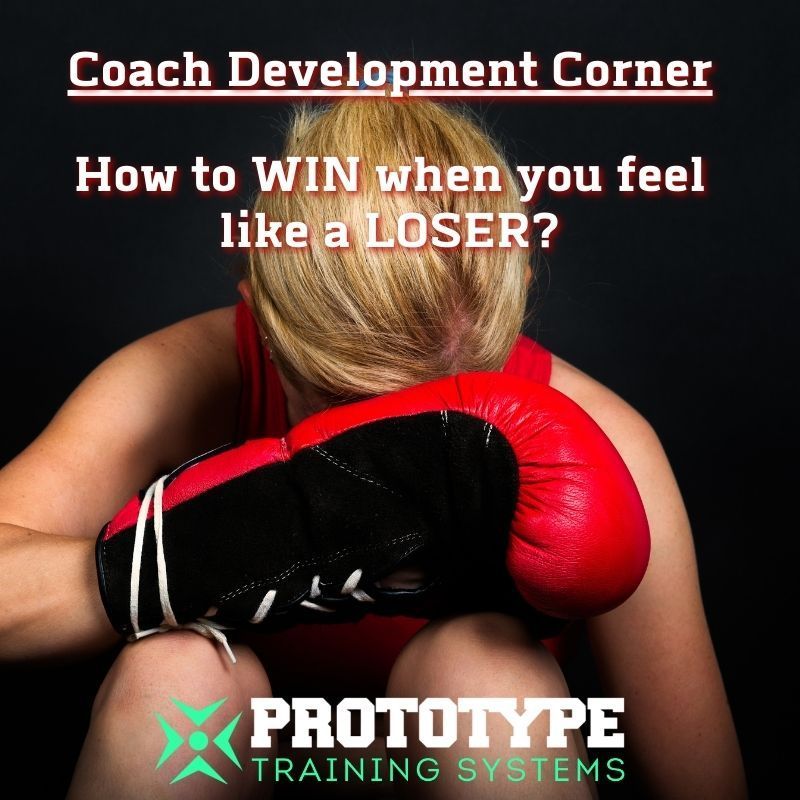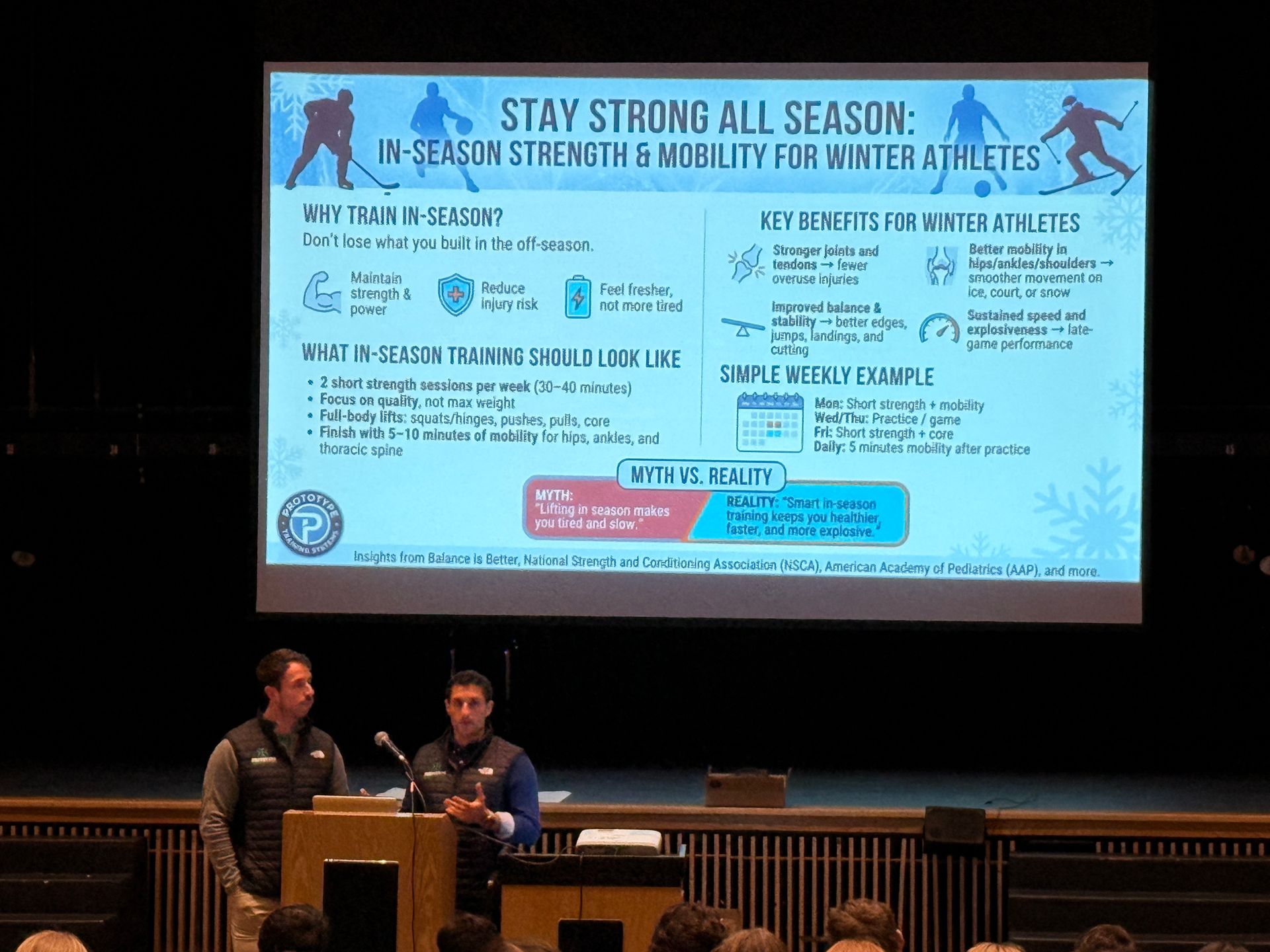Coach Development Corner: How to WIN when you feel like a loser?

In the world of coaching, the ability to adapt, persevere, and remain positive in the face of adversity is crucial. But what do you do when you as the coach are feeling down, or when you feel like you’re on a losing streak? How do you perform at your best when the world seems to be against you? These are questions that every coach (and person), at some point, grapples with.
The Importance of Mental Resilience in Coaching
Mental resilience is the capacity to remain flexible in your thoughts, behaviors, and emotions when under stress or facing adversity. In coaching, it’s not just about teaching athletes how to win games—it’s about teaching them how to win at life, how to deal with disappointment, and how to persevere when the odds are against them. As a coach, demonstrating mental resilience not only inspires your team but also equips them with crucial life skills.
A phrase that we got from our partnership with Next Jump is the concept of “Better Me + Better You=Better Us”, in essence, the Better Me has to come first… you have to fill up your cup before you can fill up someone else’s. As a coach, your life experiences and lessons learned seep through. Another way to think of it is if you’re unhealthy yourself, it’s hard to help others get healthy.
Understanding the “Loser’s Mentality”
I hope when reading this it’s not triggering… but whether you refer to it as Loser or Down/Glum/No right…the so-called “loser’s mentality” is more than just a run of bad luck or a losing streak in games. It’s a state of mind that can pervade every aspect of life, causing a person to lose confidence, doubt their abilities, and expect failure instead of success. This mentality can be crippling, but it’s not insurmountable. The first step to overcoming it is understanding it… recognizing the signs and knowing when you’re falling into this mindset. This level of self-awareness is hard to get to, but self-auditing is important, same with self-reflection.
Embracing the Full Range of Emotions
It’s essential to understand that all emotions are normal. Happiness, sadness, excitement, disappointment, pride, shame – they’re all part of the human experience. What’s not normal – or rather, not healthy – is not feeling the full range of emotions. There’s no such thing as a “bad” emotion; it’s how we handle these emotions that matters.
If you’re feeling down or like a loser, it’s not only normal but also a sign that you’re emotionally engaged with your work and your team. The key is not to suppress these feelings but to understand them and channel them productively. After all, your mindset drives your actions. If you’re in a negative headspace, making strategic decisions becomes more challenging. But if you can recognize your emotions, understand their roots, and shift your mindset, you can turn even a “losing” situation into a win.
Getting Your Mind in the Right Headspace
Getting your mind in the right headspace is not about ignoring or avoiding negative emotions. Instead, it’s about acknowledging them, understanding them, and then using strategies to shift your focus towards positivity and resilience. These strategies can include everything from mindfulness and meditation to physical activity, to engaging in meaningful discussions with a mentor or peers.
The Skillset for Winning: Self-Awareness, Rapid Exploration, and Refocusing
Having the right mindset to win is not only about attitude; it’s a skill and like any skill, you can train it. Just like professional athletes who quickly recover from a bad shot or error and get back in the game, successful coaches need to be able to swiftly move on from challenges or setbacks. This process involves three key steps:
Self-Awareness: First, you need to recognize where you are emotionally. How are you really feeling? Acknowledging your emotions is the first step to dealing with them effectively.
Rapid Exploration: Next, dig into those feelings. Why are you feeling this way? What’s at the root of it? Understanding the cause of your emotions can provide valuable insights and help you address the real issue. This is best done with a training partner. Someone who can challenge you vs. just be a sounding board, you need to be able to “punch back”.
Refocusing: Finally, once you’ve acknowledged and understood the root of the emotion, it’s time to shift your focus back to your goals. What needs to be done next? How can you move forward? What can I learn? By the way… this is EXTREMELY difficult to do. More than likely, it will happen again and you won’t recognize it. It takes reps and practice.
One important note here is that life isn’t binary, and neither are emotions. You can’t simply suppress negative feelings or mistakes; they will accumulate and potentially cause bigger issues down the line. Instead, the goal is to acknowledge, understand, and learn from these experiences, then refocus on your path forward.
Dealing with the “Loser’s Mentality”
On top of developing self-awareness, it’s important in this process to recognize how this may come out. What I’ve found with both myself and coaching others through low emotional states or a feeling of defeat, is that people can react in several different ways. Below are 3 that come to mind:
The Shutdown: Some people shut down and visibly look defeated. This can have a negative impact on their team or clients, who can sense their coach’s despair and potentially lose motivation themselves.
The Quick Fix: Others want to immediately move out of their low emotional state and look for a quick fix. They immerse themselves in work, checking off tasks from their list, etc. While this might momentarily alleviate the feelings of defeat, it often doesn’t address the root of the issue and can lead to burnout.
The Reflective Approach: Ideally, this third group develops the awareness to sit with their feelings of defeat, to understand and address why they’re feeling that way. This self-awareness can be uncomfortable, but it’s a necessary step in truly overcoming the “loser’s mentality.”
So, how can a coach move towards that third type, the reflective approach?
Coaches Need Coaches: The Role of Mentorship in Personal Resilience
Even the best coaches need a coach. I’ve worked with hundreds of coaches over the years and the most common thread is that coaches have an IMBALANCE in giving feedback and helping others vs. helping themselves. We are often so focused on filling others’ cups that we forget to fill their own. Having a coach can provide the perspective, guidance, and support coaches need to navigate difficult periods, replenish their mental and emotional resources, and develop the resilience to bounce back from adversity.
At Prototype Training Systems, our vision is to create a Coach University. The concept is simple, to develop a platform where coaches of any practice or discipline can train, develop and spread the foundational skills that can make an impact on any coach. Through our years of developing hundreds of coaches, training thousands of people from athletes to executives, and our more recent partnership with Next Jump, we can feel it in our bones this can be something impactful for so many people. Be on the lookout for more of these posts and content!
The post Coach Development Corner: How to WIN when you feel like a loser? appeared first on Prototype Training Systems.
Previous Blogs


Climb to New Heights
Prototype Training Systems is more than a gym - it is a lifestyle. Join us today!


